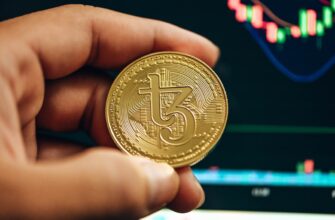- Understanding Cryptocurrency Bans: A Global Regulatory Challenge
- Why Governments Implement Cryptocurrency Bans
- Countries With Major Cryptocurrency Restrictions
- Economic and Social Impacts of Crypto Prohibitions
- Alternative Approaches to Outright Cryptocurrency Bans
- The Future of Cryptocurrency Regulations
- Cryptocurrency Ban FAQ
- Which country has the strictest cryptocurrency ban?
- Can governments completely stop cryptocurrency use?
- Do cryptocurrency bans affect Bitcoin’s price?
- What alternatives exist in banned regions?
- Are cryptocurrency bans permanent?
Understanding Cryptocurrency Bans: A Global Regulatory Challenge
The rise of digital currencies has sparked intense debate among governments worldwide, leading some to implement outright cryptocurrency bans. These prohibitions restrict or eliminate the use of decentralized digital assets like Bitcoin and Ethereum within specific jurisdictions. As blockchain technology evolves, nations grapple with balancing innovation against concerns like financial stability and criminal activity. This article examines the complex landscape of crypto restrictions, their motivations, and their ripple effects across the global economy.
Why Governments Implement Cryptocurrency Bans
Nations cite multiple reasons for restricting digital assets:
- Financial Stability Concerns: Fears of capital flight and monetary policy disruption
- Illicit Activity Prevention: Combating money laundering and ransomware payments
- Investor Protection: Shielding citizens from market volatility and scams
- Energy Consumption: Addressing environmental impacts of proof-of-work mining
- Monetary Sovereignty: Maintaining control over national currency systems
Countries With Major Cryptocurrency Restrictions
Global approaches vary dramatically:
- China (Complete Ban): Outlawed all crypto transactions and mining in 2021
- India: Heavy taxation and banking restrictions despite no formal ban
- Nigeria: Banking ban but peer-to-peer trading remains popular
- Egypt: Religious decree against cryptocurrency under Islamic law
- Russia: Mixed signals with proposed bans later softened to regulation
Economic and Social Impacts of Crypto Prohibitions
Bans create complex consequences:
- Innovation Drain: Blockchain developers migrate to crypto-friendly jurisdictions
- Underground Markets: VPN usage and P2P trading surge in restricted regions
- Investor Losses: Sudden bans trap assets and crash local crypto valuations
- Remittance Disruption: Blocks cost-effective cross-border payment solutions
- Regulatory Arbitrage: Businesses relocate to hubs like Switzerland or Singapore
Alternative Approaches to Outright Cryptocurrency Bans
Many nations prefer regulatory frameworks instead:
- Licensing Systems: Japan’s FSA-approved exchange model
- Asset Classification: SEC treating crypto as securities in the US
- Central Bank Digital Currencies (CBDCs): State-controlled digital alternatives
- Transaction Monitoring: EU’s Markets in Crypto-Assets (MiCA) regulations
- Taxation Policies: Capital gains reporting requirements
The Future of Cryptocurrency Regulations
Trends suggest a move toward nuanced oversight rather than blanket bans. Key developments include:
- Global coordination through bodies like FATF (Financial Action Task Force)
- Advancements in blockchain analytics for compliance
- Growing institutional adoption forcing regulatory clarity
- Hybrid models allowing controlled crypto access
- CBDCs integrating with existing financial systems
Cryptocurrency Ban FAQ
Which country has the strictest cryptocurrency ban?
China maintains the most comprehensive ban, prohibiting all cryptocurrency transactions, mining, and related services since 2021.
Can governments completely stop cryptocurrency use?
While authorities can restrict exchanges and banking access, decentralized networks remain accessible via VPNs and peer-to-peer platforms, making total enforcement challenging.
Do cryptocurrency bans affect Bitcoin’s price?
Major bans cause short-term volatility but rarely impact long-term value due to Bitcoin’s global nature. China’s 2021 ban triggered a 30% temporary drop before recovery.
What alternatives exist in banned regions?
Users often turn to decentralized exchanges (DEXs), VPN services, peer-to-peer marketplaces, privacy coins, or stablecoins pegged to less volatile assets.
Are cryptocurrency bans permanent?
Not necessarily. Countries like India and Nigeria have fluctuated between proposed bans and regulatory frameworks, showing policy evolution as markets mature.








